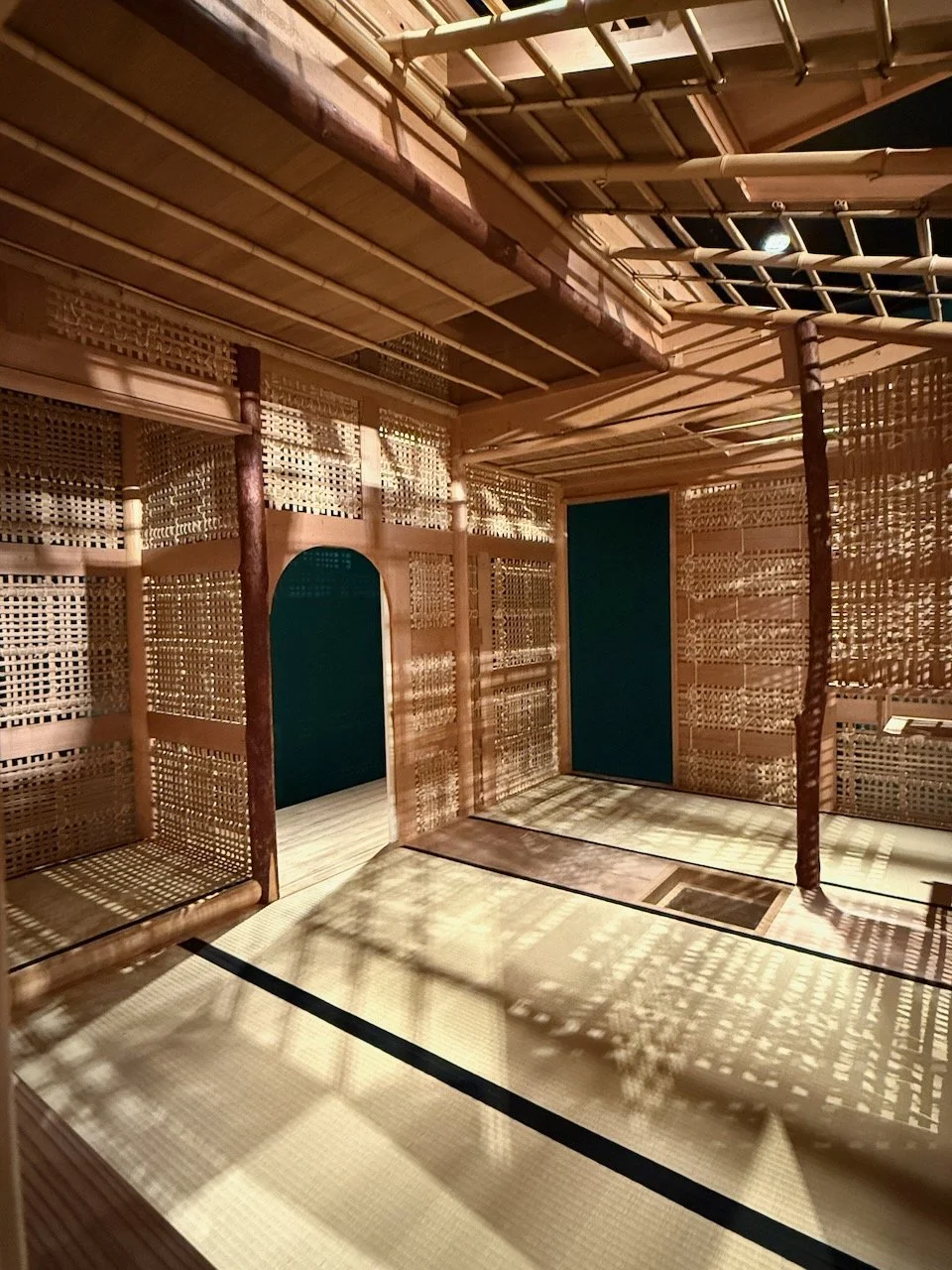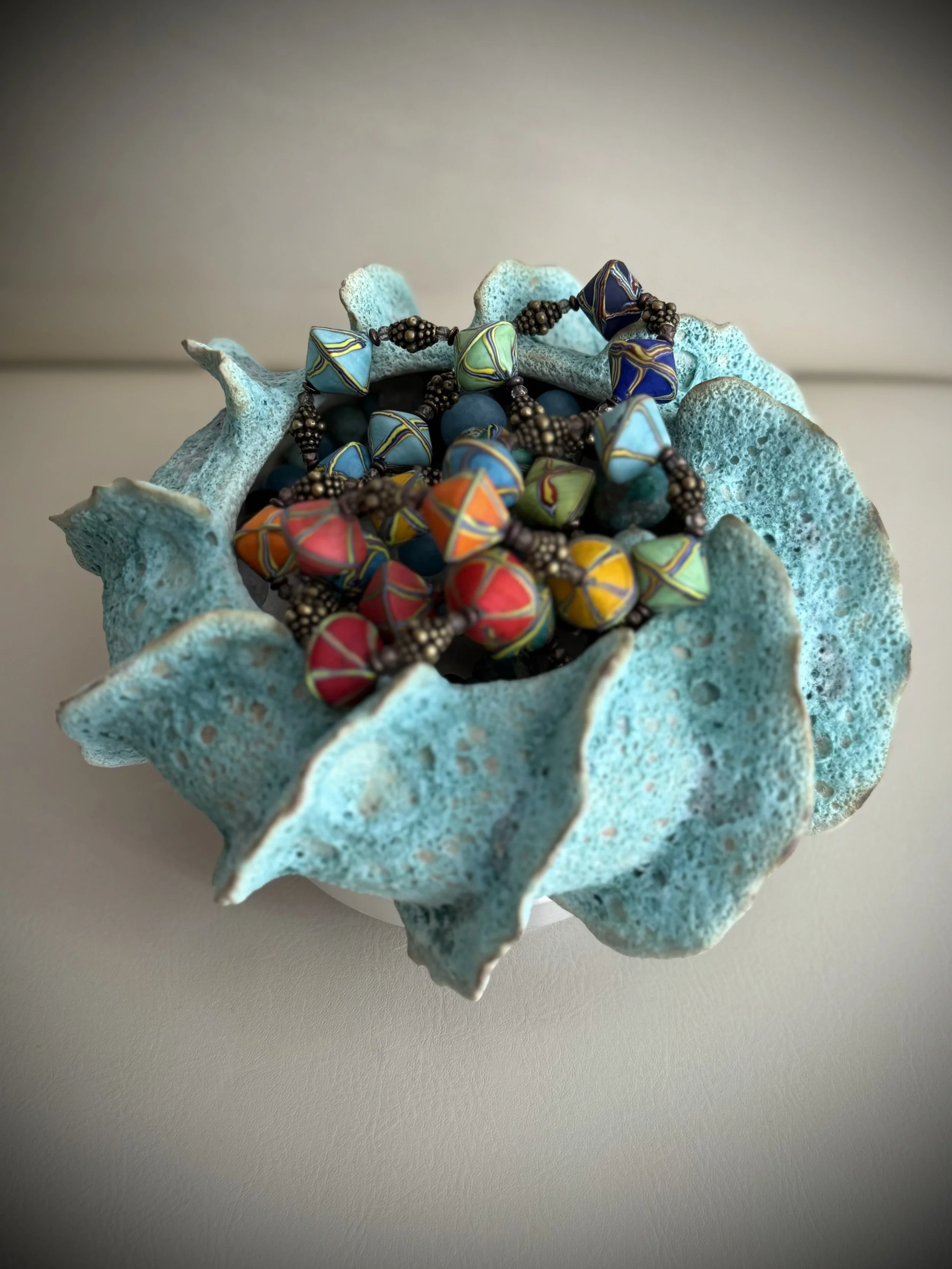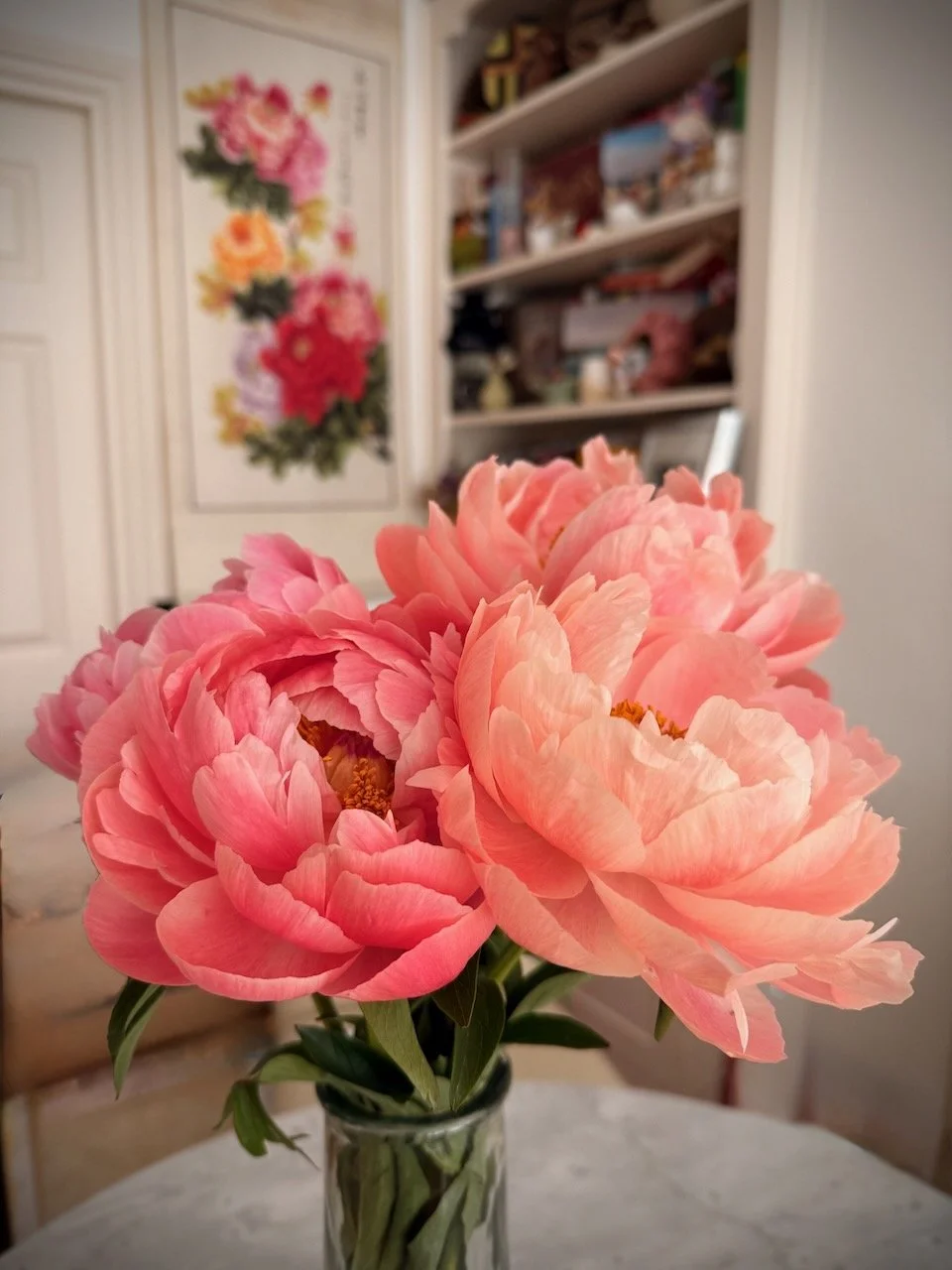The Art of Imperfection: How Wabi-Sabi Shapes Beauty and Living
Perfection is predictable — but imperfection is alive. Wabi-sabi teaches us that beauty lives in cracks, in things that weather, age, and change. It’s not about flawless — it’s about soulful. 🌿
✨ Ready to bring this philosophy into your home? Discover wabi-sabi ceramics in my shop.
Origins of Wabi-Sabi
A full size replica of the Japanese Tea House displayed during The Craft of Carpentry exhibition at Japan House in London — a reminder of wabi-sabi’s roots in humility, simplicity, and the beauty of everyday rituals.
The underlying concepts of wabi-sabi have roots in Chinese Taoism and Zen Buddhism, which emphasised accepting nature’s uncontrollability and finding beauty in humble, unrefined realities.
• Wabi (侘び): Originally meaning isolation or loneliness, it evolved to represent rustic simplicity, modesty, and contentment with what is imperfect or insufficient.
• Sabi (寂): Originally meaning withered or degraded, it transformed to signify the beauty that emerges with age, wear, and the passage of time, such as a weathered patina.
Tea master Sen no Rikyū 🍵 shaped this philosophy — shifting the tea ceremony away from lavish Chinese imports toward humble pottery, rustic teahouses, and quiet beauty. A reminder that true elegance lies in simplicity.
In a wabi-sabi tea ceremony, the nijiriguchi (low, crawl-through door) symbolises humility and equality — forcing every guest, regardless of rank, to bow and shed ego before entering.
🌿 This same spirit of humility and authenticity inspires my ceramics. Explore the collection.
Handcrafted vs Machine-Made
This is the very first of my sea creature vases — alive with organic curves inspired by ocean waves — paired with a Murano glass bead. Both pieces celebrate generations of human touch and artistry, where imperfection becomes soul.
The beauty of handcrafted objects lies in their uniqueness, artistic expression, and cultural connection. They embody a personal touch and sustainability. Machine-made items, by contrast, offer flawless precision, affordability, and convenience.
Machine-made is flawless. Handcrafted is alive — full of irregularities, textures, and soul. The handmade gift is unique and spiritual — it carries the artist’s energy.
💫 If you value soulful over flawless, you’ll love my handmade vases.
Connection
We connect with imperfection 💞. Traces of the hand, small irregularities — they make objects feel more human, more real. Imperfection reflects the reality of human experience, reminding us that we all struggle, grow, and change.
Embracing imperfections fosters authenticity and enables deeper connections — with objects, with people, with ourselves.
🌸 Every handcrafted piece I create is designed to spark that connection. Discover your imperfectly perfect match.
Transience of Beauty
Coral peonies 🌺, my favourite flowers, shift from bright coral pink to pale tea rose as they bloom. Their fleeting beauty is mirrored in a vintage hand-painted scroll I discovered in a Hong Kong flea market. After careful restoration, it now graces my home — living proof that beauty not only endures through time but deepens, becoming more meaningful after repair.
Nothing lasts forever 🍂. Weathered wood, faded fabric, cracks — all tell a story.
The transient beauty of wabi-sabi reminds us to appreciate the fleeting moments. By recognising that beauty is temporary, we learn to cherish the present more deeply.
This idea may be rooted in Japanese philosophy, but its truth is universal.
🍃 Would you like to bring more mindfulness into your daily rituals? Explore ceramics for everyday rituals.
Sustainability
The wabi-sabi philosophy encourages mindful consumption, cherishing what we already have, and repairing rather than replacing. It stands against fast fashion and disposable culture, valuing authenticity, durability, and materials that age gracefully.
Signs of wear and tear aren’t flaws — they’re part of an object’s story. Repair adds meaning. Choosing organic materials like ceramics, wood, stone, and metal supports sustainability while inviting beauty that evolves over time.
♻️ My ceramics are handcrafted with this ethos in mind — made to last, to age gracefully, and to be loved for years. Shop sustainable pieces.
At LS Art & Design, every piece embraces the wabi-sabi spirit — celebrating imperfection, impermanence, and soulful beauty.
✨ Discover ceramics that bring balance and authenticity to your home. Visit the shop.
📩 Or, join my newsletter for styling tips and inspiration on living with art.


